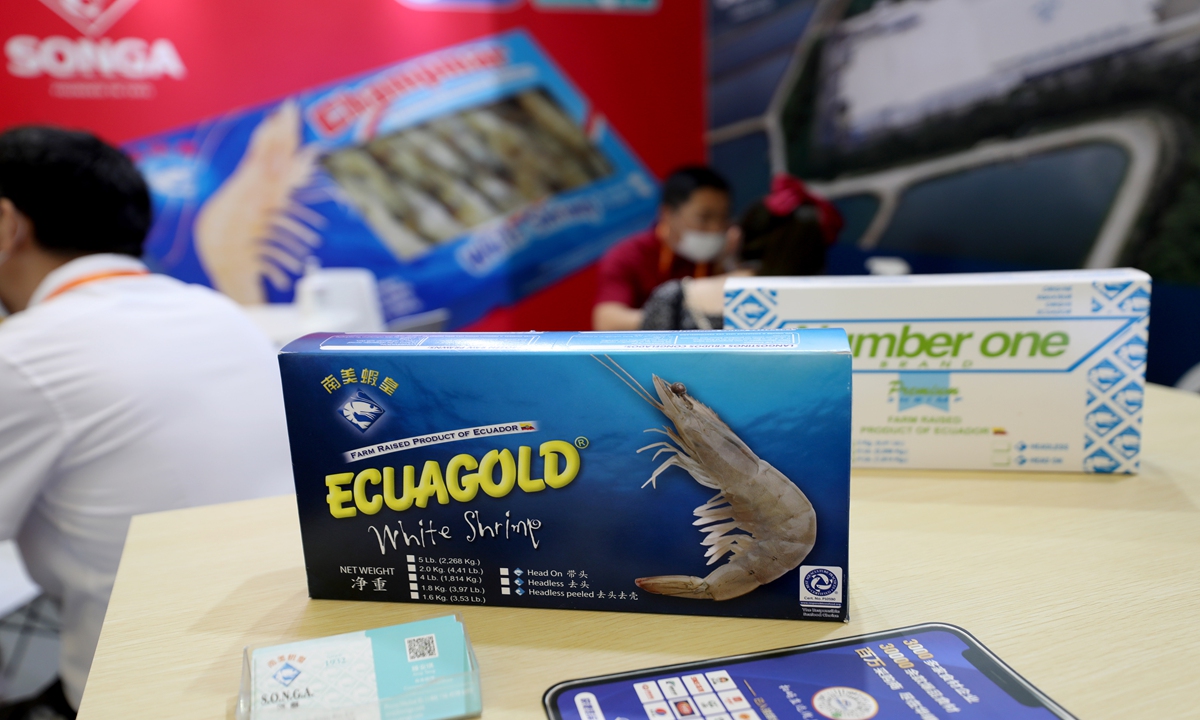China suspends imports from 56 food firms on virus concerns
Source: Global Times Published: 2020/9/8 21:03:40

An Ecuadorian seafood exporter and shrimp producer displays a box of Ecuadorian shrimp at World Seafood Shanghai 2020, a trade event, on Wednesday. Photo: Yang Hui/GT
As of Monday, China had suspended imports from 56 cold-chain food companies of 19 countries and regions where workers have been infected with COVID-19.
China's General Administration of Customs (GAC) said on Tuesday that 41 of the companies had voluntarily stopped exports to China.
Packaging and containers of imported frozen food in China have repeatedly tested positive for COVID-19. As of Monday, the GAC had spot-checked more than 500,000 samples from imported cold-chain food, and one sample from a container and five from outer packaging tested positive.
Several other cases of positive tests were also reported across the nation in imported frozen food, including seafood and chicken. The packaging of frozen shrimp products from Ecuador tested positive for COVID-19 in several cases, including coastal cities like Dalian, Northeast China's Liaoning Province and inland cities like Southwest China's Chongqing city.
Although there has been no case of anyone contracting COVID-19 from touching or eating imported seafood products, and there is no clear evidence that imported seafood poses a higher risk of COVID-19, the seafood industry has been heavily affected, retailers said.
A retailer surnamed Wu based in Beijing's Jingshen wholesale market told the Global Times that most of his products are imported, and his business at the market has been suspended since the COVID-19 flare-up in June. He reopened his business online at the end of July.
"It was partly due to import restrictions and partly due to customer panic," Wu said. "Although only three shrimp companies from Ecuador were banned, we're not selling Ecuadorian shrimps because customers won't buy them."
Cui He, president of the China Aquatic Products Processing and Marketing Alliance, said he believes the sporadic detections of COVID-19 on imported frozen products will inflict only short-term damage, given the recovering demand in the Chinese market.
To strengthen import inspection, the GAC said it has been helping companies exporting to China better enforce safety measures. As of Monday, it had held 121 video conferences with companies from 99 countries and regions.
China is a major meat importer. In the first eight months of this year, China imported 6.58 million tons of meat, exceeding the total for all of 2019, according to the GAC. In 2019, meat imports stood at 6.17 million tons, up 121.3 percent from to five years earlier.
Posted in: ECONOMY